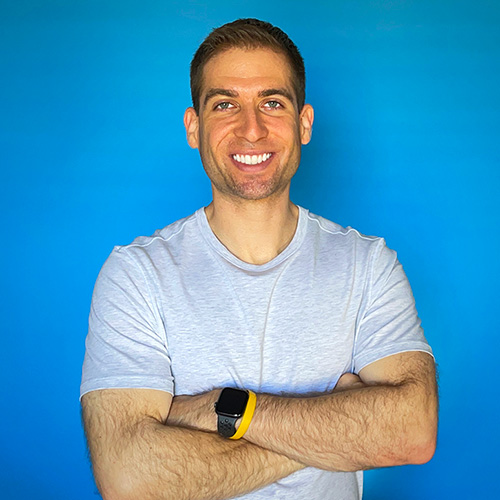My sleep quality was awful, and I didn’t even realize it. It took me years of behavioral and environmental tweaks to fix it. Now I sleep like a baby. One that doesn’t wake up at night. Or cry or poop their pants. Today I’m going to walk you through all those tweaks. I’m going to detail my sleep hygiene, so you don’t have to waste years tweaking yours. So, let’s get into it!
Morning
6:30am
I’m not awake yet but my automated gadgets are. My Nest thermostat sets the temperature to 70 degrees. Not only is the air getting warmer but so is my bed. My Ooler temperature-controlled mattress pad is triggered with a wake alarm. It too heats up with warm water flowing under my sheets. Not long after, my smart light bulbs begin their sunrise effect. Although I’m in my bedroom, my environment has been automated to simulate daybreak. These factors allow me to wake up each morning naturally, without an alarm. No rude awakening and no urge to hit snooze.
8:00am
At 8am, it’s time to calibrate my sleep-wake cycle. Each of us has a 24-hour circadian clock that controls our sleep-wake cycle. But that clock can shift in duration and time based on the environment and our habits. It can cause us to be alert at night or sleepy in the morning. One of the best ways to calibrate this sleep-wake cycle is with bright light and activity. It’s critical to get early morning light exposure. This pulses healthy cortisol through the body for daytime alertness and schedules melatonin’s release later for evening sleepiness. I’ve found it best to get a morning outdoor walk to achieve this. Usually, it’s a 30-minute trip around the block or an early morning run. On workdays when I’m short on time, an 8am walk on my treadmill desk in front of windows, and with the lights bright does the trick. [1]
Afternoon
Avoid
In the afternoon, I avoid naps, alcohol, and caffeine. For years I would take afternoon naps because of intense drowsiness. Now I realize those naps led to my poor sleep quality. That increased my propensity for naps. And poorer sleep. It was a vicious cycle. While naps are ok for some people, they haven’t been beneficial for me.
And while I’ve never consumed alcohol or been a fan of caffeine, they’re popular. Caffeine consumed in the afternoon is sleep’s nightmare. One study showed that caffeine consumed six hours before bed increased time to fall asleep by 23 minutes. Total sleep time decreased by almost an hour and sleep efficiency dropped significantly [2]. Alcohol on the other hand disrupts the ideal architecture of sleep. This causes abnormalities to your circadian rhythm and poor sleep quality [3]. Therefore, I avoid both.
Do
What I do instead is workout. Exercise, whether it’s aerobic or anaerobic, increases sleep quality and efficiency. Around 4pm I’ll go for a long run and shortly after I’ll do my resistance training. This physical exertion demands deeper sleep at night for full recovery. [4]
Evening
7:00pm
I just finished dinner and am done consuming calories for the night. This will prevent indigestion and acid reflux hours later when I climb into bed.
It’s also the same time where my automated gadgets start their dance. Smart lights in my living room, bathroom, and bedroom start to warm and fade. Over the next few hours, they’ll simulate an apartment-wide sunset. This allows my melatonin to flourish and sleepiness to emerge.
9:00pm
At 9pm I stop using all digital screens. Unless Tom Brady or Steph Curry are playing. Then I throw sleep hygiene out the window. But when they’re not, I’ll use the next hour to read, stretch, and meal prep. These relaxing activities don’t disrupt my melatonin production like electronic or bright light does.
While I’m doing this, my Nest cools my apartment to 68 degrees and my Ooler mattress pad turns my bed into a refrigerator. At 10pm I’ll walk into my bedroom and close my sound dampening blackout curtains. All these steps have prepared me for a wonderful night’s sleep in a dark, quiet, and cool environment. Now I’m ready for 8 more hours of magnificent sleep.
Final Thoughts
Proper sleep hygiene is better than any single hack, tool, or sleep supplement you’ll find. It’s these behavioral and environmental habits that promote high quality sleep. It starts the moment I wake up to when my head hits the pillow at night. And it’s these habits repeated with consistency over time that’ll have you too sleeping like a baby.

Hi, I’m Brandon Zerbe
Welcome to myHealthSciences! Every week I share habits for health excellence. I do this by covering topics like Fitness, Nutrition, Sleep, Cognition, Finance and Minimalism. You can learn more about me here.
Sources:
- [1] Optimization of Light Exposure and Sleep Schedule for Circadian Rhythm Entrainment
- [2] Caffeine Effects on Sleep Taken 0, 3, or 6 Hours Before Going to Bed
- [3] Alcohol and Sleep-related Problems
- [4] Interrelationship Between Sleep and Exercise: A Systematic Review
